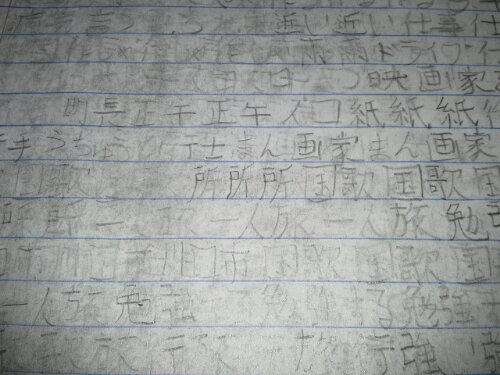I am a nerd. As such, I have an huge inventory of acronyms which are basically useless in the real world. Still, the following threw me off today (as I was wasting time I don’t have indulging said nerdiness):
One female human thief in LLK of TC in EB of WvW, from Guild [PinK] of SOS servers.
https://forum-en.guildwars2.com/forum/wuv/wuv/A-Thief-in-TC-LLK-in-WvW
In normal person speak, this says: “Someone was in the Tarnished Coast game server’s Lowland Keep in the Eternal Battlegrounds Player versus Player game zone. They were in a guild named Pink that plays on the Sea of Sorrows game server.”
In fact, that’s not really normal person speak as I’m sure almost nobody who doesn’t play the game understands the translation. It would have to be parsed even further to make sense to people who don’t play video games, let alone Guild Wars 2. Maybe it would be something like this: “Someone playing an online video game against other players was in an enemy player’s base in an area where players fight eachother. They were a member of a group of players that often play together and call their group Pink.”
Of course, this loses all specificity (and makes awkwardly heavy use of the play morpheme). I’m not sure there’s actually a way to translate the original sentence to someone who has no familiarity with the subject at all without going into enormous amounts of explanation, which probably fits well into Language Log’s concept of nerdview.
But what really caught me was the orthography here, not the semantics. The original sentence was difficult to parse on the first reading even for myself. There are six acronyms (PinK, as all guild tags in the game are, is actually an acronym) which all require significant familiarity with the game. MMOs thrive on this sort of thing because so much conversation is typed while performing various other actions. Shorthand becomes essential for efficiency so that your character doesn’t die. Hell, even MMO is sort of for efficiency. It stands for massively multiplayer online… game. It used to be, more commonly, MMORPG (massively multiplayer online role playing game), then it got shortened because even the acronym was too much. Sometimes you’ll still see MMOG (massively multiplayer online game) but I’ve only really come across this being used by people who don’t play these games. This reminds me once again of the debate over Japanese orthography. Kanji are essentially serving the same function as acronyms in MMOs and the difficulty in understanding them for the uninitiated is often outweighed by the benefits they offer for the initiated.
This also reminds me of one of my favorite MMO shorthands: QQ. This isn’t actually an acronym–it’s not even a morphogram like kanji–it’s a pictogram. It’s literally supposed to look like two eyes with tears coming out. It means cry. I was confused by this for the longest time while playing Dark Age of Camelot, where (if you can call a game a place) it was invented because I kept wanting to read it as an acronym. Actually, I guess this wasn’t done for efficiency since there’s literally a one character difference. Maybe it’s for the semantic effect: I don’t believe you can use QQ to show sympathy for someone; it’s always used to mock. Hence one of the advantages, inherent in languages written in multiple ways like Japanese: intonation in writing.
And if you don’t understand what I’m talking about, QQ more newb.

Recent Comments